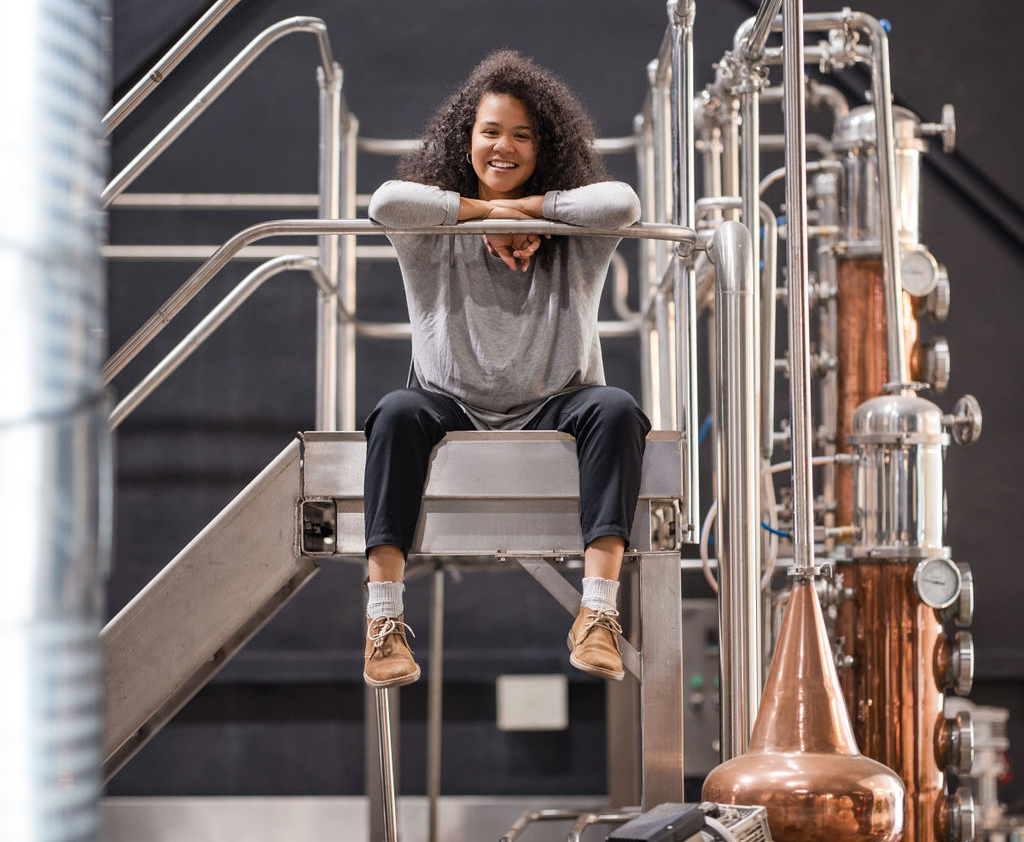Mitchells Plain, about a 20km-drive from Cape Town’s city center, is a small, densely populated area with its own array of social ills and issues. But for Kiara Scott, it is the place where she first fell in love with the idea of becoming a winemaker.
“I grew up surrounded by – I am trying to find a diplomatic way of saying this – partying and people enjoying beer and hard liquor and all of those things,” Scott laughs, speaking to FORBES AFRICA.
“And I was really interested, I think, in more of the chemistry of wine… that can sometimes have different effects on people… My family was also quite conservative. We were always told to stay away from any alcoholic beverage or drugs… So, it got me curious.”
Surprisingly, Scott received no pushback from her family when she spoke of her career ambitions – in fact, both her mother and grandmother encouraged her to pursue her passion.
Having graduated from the Elsenburg Agricultural Training Institute, in Viticulture and Oenology, in wine town Stellenbosch and with years in the vineyards, the now 32-year-old recently took home the Diner’s Club Winemaker of the Year Award, making her just one of two women in 44 years to win the title. She was South Africa’s youngest female winemaker, when she was appointed by Brookdale Estate in 2019, and is now the head winemaker at Hazendal Wine Estate in Stellenbosch.
Loading...
The South African wine industry continues to boom. The Western Cape province’s diverse climate and soil types create the ideal condition for winemakers to grow a variety of grapes. According to a report by Wines of South Africa, there are currently 87,848 hectares of vines producing wine grapes under cultivation in South Africa over an area of some 800km in length. The report further states that the industry employed 270,363 people in 2019, which included farm laborers, those involved in packaging, retailing and wine tourism.
And although this industry is considered male-dominated, according to London-based wine consumer research and insights specialist Wine Intelligence, “the narrative has been shifting, and today, women are not just participating but leading and shaping the future of winemaking”.
“In the earliest records of winemaking history, women’s roles were often limited to supporting tasks, despite their significant contributions,” the report in Wine Intelligence states. “Today, the landscape looks dramatically different. Women are winemakers, sommeliers, wine business CEOs, and hold numerous other critical positions within the industry. They bring diverse perspectives and innovations to winemaking, from sustainable practices to experimental techniques.”
Scott, one of only a few young colored women in South Africa and globally who is a winemaker, reiterates that is positive news for the industry.
“There are definitely more women today in the wine industry than when I started. At that time, there were probably only two female winemakers that I was aware of.”
Harking back to challenges of climbing up the ladder, Scott can’t help but smile and say, “I try to have a very the-glass-is-half-full approach and stay optimistic and positive. I think in any industry, in any career, there are definitely challenges, particularly with being a woman, [you will find] gender stereotypes. And then on top of that, also being a colored person, or a person of color, I’ve definitely had some experiences where that has been negative, but I will say, for the most part, it’s actually been quite positive.”
Her philosophy of minimal intervention and terroir-driven expression aligns with her interest in creating wines that are as technically exacting as they are bold.
“I have a simple and minimal intervention approach to winemaking. I believe that great wines are made in the vineyard. Year on year, I am aiming to better understand our vineyards and soils to make the work in the cellar easier,” Scott adds. “There have been challenges but nothing is not fixable and for me there is nothing else I would rather be doing than this.”
Loading...
